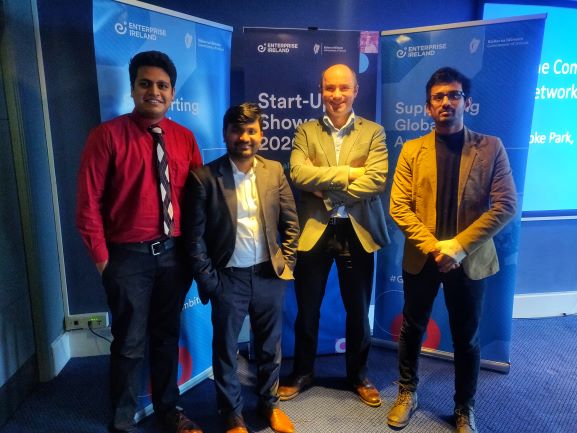
As part of the MTU Innovation and Enterprise month, the Innovation and Enterprise Office presented the MTU Invention of the Year Award 2022, which took place on Friday March 11. The purpose of this award is to acknowledge and recognise the work and effort that staff have put into their invention declarations during 2021. The MTU Innovation and Enterprise Office also wish to raise awareness of the invention disclosure process and the importance of developing new and novel research with intellectual property (IP) and commercial potential.
The Centre for Advanced Photonics and Process Analysis (CAPPA) was announced as the winner during the virtual event, for the PIXCAN (Photonic Integrated Circuit Scanner) project. All Invention Disclosure Forms (IDFs) were submitted to the Research Office in Kerry and the Innovation and Enterprise Office in Cork in 2021 were included for evaluation. There were 20 entries on the day from different research centres across MTU. This year there was two prizes, the first was commercial invention of the year and the second was technical invention of the year. Dr Joanna Tierney from Shannon ABC won the award for best commercial invention with CAPPA’s PIXCAN project winning the best technical invention of the year. There were four inventions from CAPPA nominated for the 2021 year. This is the second year in a row CAPPA has won the MTU Invention of the year.
Currently, commercially available testing methods for Photonic Integrated Circuits (PIC) employ fibre probes. To couple light in and out of the PICs using fibre probes, additional coupling waveguides and grating couplers must be fabricated on the wafer. At MTU, we use the PIXCAN set-up as an alternative technique for testing PICs. We have characterised individual photonic crystals (PhC) cavities using the current resonant scattering spectroscopy (RSS) technique. This technique allows a complete characterisation of the modes of a defect state in a photonic device, in terms of quality factor, line shape, and coupling efficiency, without loading effects. Although RSS is proven for characterisation of PhCs, so far it was not scaled up for wafer-scale operation. The resonant scattering technique can also be extended to test ring resonator devices.
RSS is the first technology to test individual resonant components of the optical circuits on a wafer scale. The current technologies test complete photonic integrated circuits only and do not provide information directly on the individual components. Testing of individual components provides substantial cost savings both during prototyping and mass production of photonic circuits by screening the working dies, thus saving costs in further processing steps. The major advantages of the proposed RSS techniques are that it is non-invasive, there is no need for additional components to be fabricated which saves real estate on wafer, there is a high throughput due to wafer scale automation and low maintenance and down time due to lack of any additional hanging probes.
The PIXCAN project involved Dr Chinna Devarapu, Dr William Whelan – Curtain, Dr Uday Gowda and Adarsh Anathachar. Dr Chinna Deverapu received the prestigious MTU Invention of the Year trophy at the virtual event after his presentation. You can learn more about the current projects and research activities at CAPPA here.


